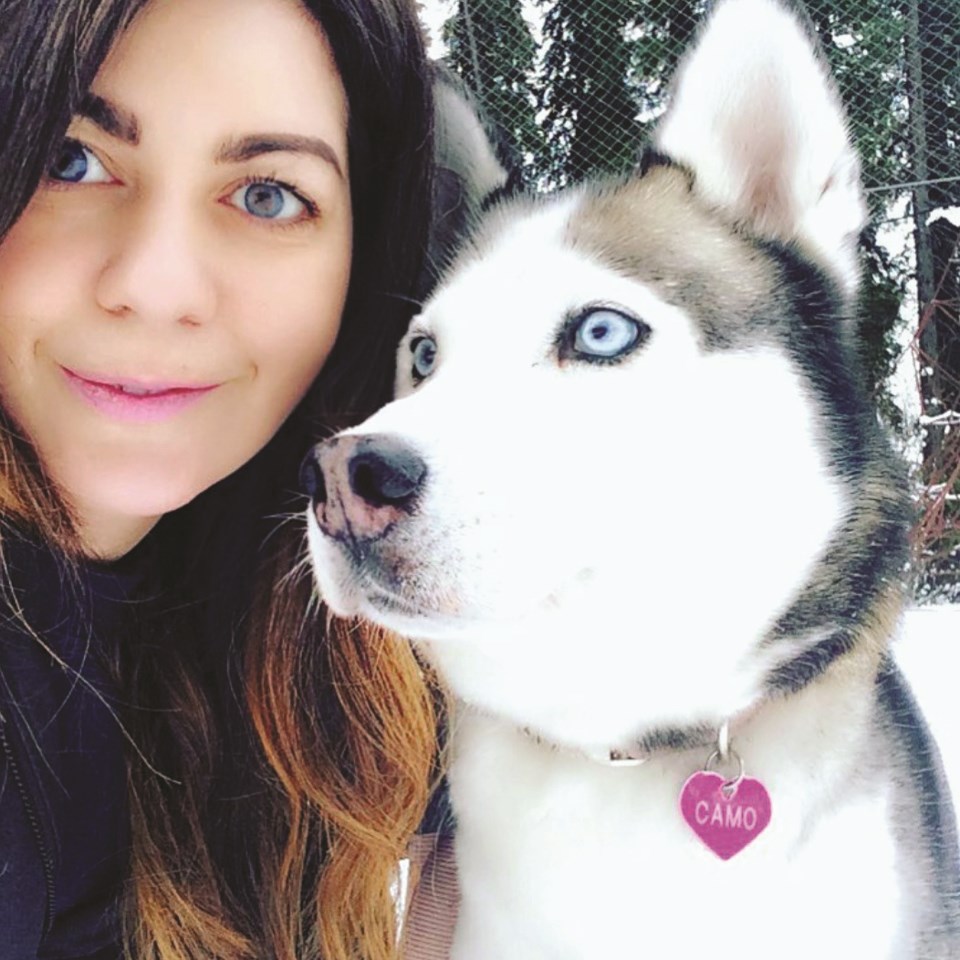Following a visit to the vet, Shannen Carlson believed her beloved husky, Camo, was in the clear after accidently ingesting rodent poison on the Village Stroll in Whistler in 2017.
But less than a year later, Camo passed away from cancer.
“We can’t say for sure it had anything to do with [the rodent poison]; it’s one of those things that we’ll just never know,” Carlson said.
“But it was very disappointing what happened at the time, that there was some recklessness and carelessness in the village for that to happen. Whistler is a very dog-friendly community, and people are constantly walking their pets, and anything could happen.”
According to Camo’s medical summary from Twin Trees Veterinary Clinic, the 10-year-old former sled dog had ingested “several packets” of the green poison, which works by interfering with the body’s ability to clot blood, causing death by internal bleeding.
Attending veterinarian Melinda Lopez declined an interview with Pique, instead deferring to a Sept. 1 presentation she gave to Whistler council on behalf of Sea to Sky Injured Wildlife asking for rodent poisons to be banned.
The use of rodent poison is widespread in Whistler, and their containers can be found outside of businesses, hotels, Airbnbs and private residences, Lopez said.
“I can’t count how many pets I have actually treated for rodent poison ingestion,” she said, noting that a YouTube video on the topic posted to her clinic’s channel is their most popular video.
“I just think we need to jump onboard. It’s not just pets, but wildlife and children as well.”
There’s “absolutely no reason” to be using poison when traps are available, Lopez said, adding that using poison is an “out of sight, out of mind” tactic.
“You never see what happens, but that’s also the disadvantage, because actually some of us do see what happens,” she said.
“I’ve seen pets being brought in for rodenticide poisoning at all stages, and it’s a horrible way to die.”
Rodent poisons are “hardly ever properly stored,” Lopez said.
And as was the case with Camo, while some dogs can be treated for the initial poison ingestion, they may develop complications down the line, Lopez added.
“One of these patients was a young puppy. I think she was only 10 weeks old when she ingested rat poison on the Village Stroll,” she said.
The puppy’s initial treatment seemed to have a result, but “several months later she developed liver failure for unknown reasons,” Lopez said.
“The owner spent thousands, possibly 10-plus thousand, at a specialty hospital trying to save her, and was unable to. And at the back of our mind, we’re always wondering if this was possibly a sequela to having been exposed to poison months earlier.”
As it stands, the Resort Municipality of Whistler (RMOW) contracts pest control to a local company, which relies on poisons for mice and live removal where possible.
As a result of Lopez’s presentation, “the RMOW will be transitioning toward more humane ways to deter mice through continued mitigation measures, research and by working with our service providers’ expertise and reach,” a spokesperson said.
Further, the RMOW’s current pesticide use bylaw does not ban the use of rodenticides if they are used to provincial standards, the spokesperson said.
“The RMOW is in the very early stages of investigating the opportunity to update our bylaws and ban their use,” the spokesperson said.
“Further discussion around a complete ban of these products is required with input from the community.”
The RMOW also plans to run a social media campaign next fall reminding of the dangers of using poison for pest control.




